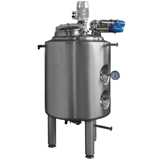Dr Stuart Khan, an environmental engineer at the UNSW Water Research Centre, spoke at the hearing about the potential health and environmental risks of CSG activity.
He said poorly planned exploration and extraction poses considerable risks to both groundwater and surface water systems.
He wrote in a submission that regulators and policy makers in NSW are faced: "with a severe lack of guidance, support, knowledge and experience for assessing and overseeing the safe management of CSG activities in this state."
According to Khan’s submission, drilling through aquifers, impervious rock – those through which water cannot pass – and coal seams risks interconnecting confined groundwater reservoirs, leading to their contamination.
"Waters from coal seams are known to naturally contain considerable quantities of toxic chemicals including benzene, toluene, ethylbenzene, and xylenes – collectively known as BTEX," Khan wrote.
"Interconnecting isolated pristine aquifers has the potential to seriously impact future valuable drinking water supplies."
Some of the other key points from his submission include: extracted CSG waters, which often contain toxic organic chemicals, present a significant risk to nearby surface water and groundwater qualities in the event of leaks or spills.
In some locations, extracted CSG waters are disposed of by "deep well injection". This has the potential to contaminate receiving aquifers, he wrote.
Injection of fracking fluids (designed to fracture underground rock beds) to coal seams, which contain chemical additives, may contaminate groundwater supplies. Furthermore, fracking fluids are designed to alter the natural geochemical conditions, and have the potential to mobilise otherwise stable chemicals present in aquifers.
In addition to normal operations, Khan said the risk assessment guidelines should cover potential hazardous events that happen unexpectedly as a result of extreme weather, equipment failure, or human errors. This is an important consideration, as large CSG operations would likely require on-site storage of chemical substances.
He also said there should be extensive monitoring of water quality well before CSG activity begins, and that more analytical testing is needed to understand the health risks associated with chemicals in CSG groundwater.




















-160x160-state_article-rel-cat.png)